6 min read
Demining Cambodia - Restoring communities through engineering innovation
- Gentle giants
6 min read
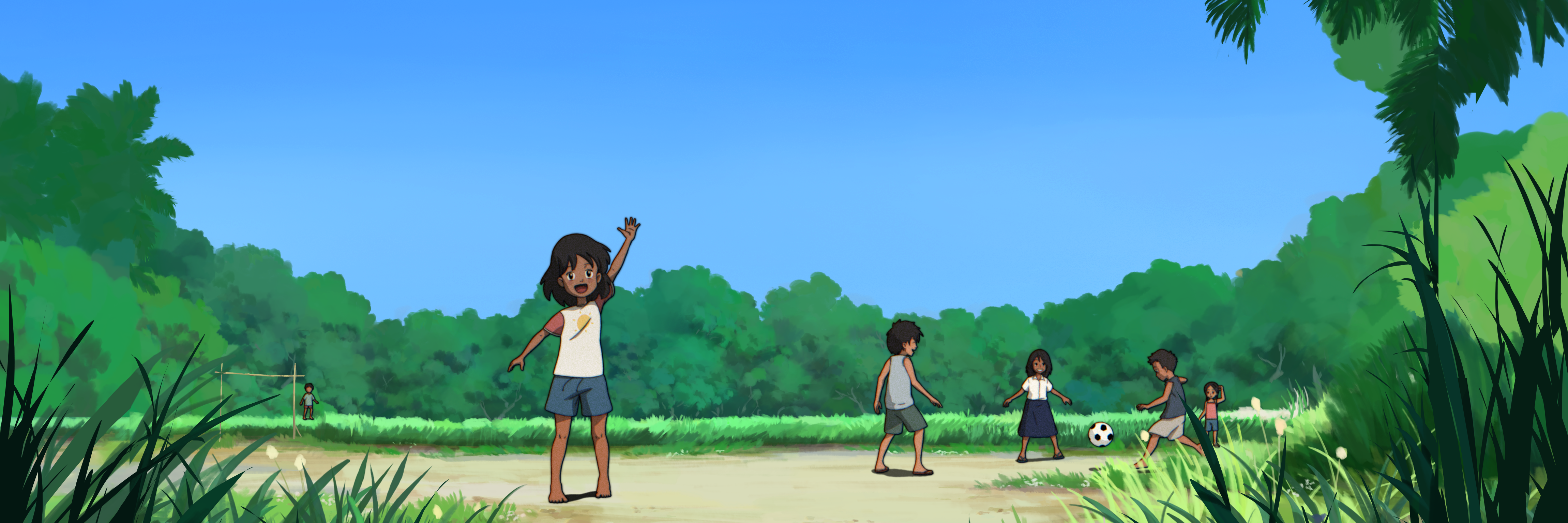
Long after civil war in Cambodia concluded, millions of unexploded landmines left buried throughout the country’s western countryside have made life difficult for residents of this peaceful land. With the risk of severe injuries and death under the surface of affected land, Cambodians have struggled to set up functioning communities.
To support the Cambodian people in their reclaiming of these homelands, in 2008 Komatsu began donating special equipment we designed to remove the landmines without causing harm to those involved in the efforts.
Working with the Cambodian and Japanese governments, community partners and the local people, we are helping clear millions of square meters of land and then rebuilding these communities stronger for the future.
Meet key members of our team who are helping lead the project by solving complex challenges and delivering real change for people who need it most.
Meet Atsushi Nagira, Lead Engineer
Atsushi Nagira has been the lead engineer in charge of the demining project in Cambodia since the very beginning. He played many crucial roles; identifying the needs of local authorities who sought urgent assistance for mine clearance and community development, coordinating necessary funding with NGOs and the government, and the technical challenges of converting a standard bulldozer into a demining dozer.
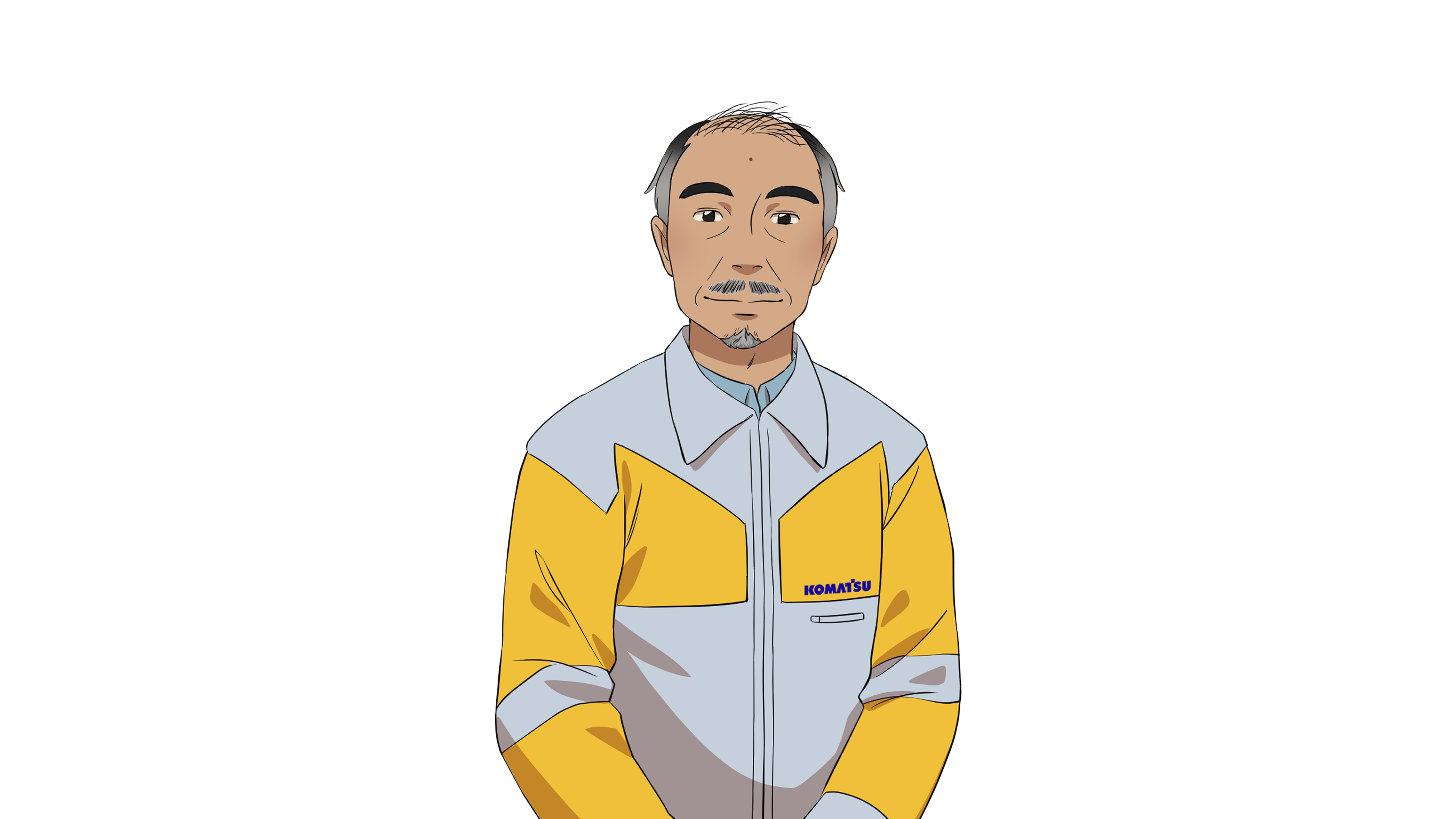
From the start it was clear the demining equipment needed to be strong, safe and able to operate at speed. So, he looked at Komatsu bulldozers, engineering them to be able to break landmines into pieces under the ground whilst having bulletproof and soundproof operator cabins. All of this of course knowing … “our deminers needed to be strong enough and multifunctional to clear anti-personnel landmines while simultaneously cutting down vegetation.”
Nagira was also responsible for the early negotiations to obtain support from Cambodian local governments, demining agencies, NGOs, and the Japanese government to secure personnel and funding for the project. However, gaining trust with the local communities was just as complex.
In the first year, Nagira and his team had few interactions and little to no support from the locals. Trust started to foster when they began training local operators to use and maintain the demining dozer. Trust was also established by committing to being a force for good, as Komatsu employees would visit with local students and teachers to support the development of new and improved schools, which over 90% of the area children now attend.
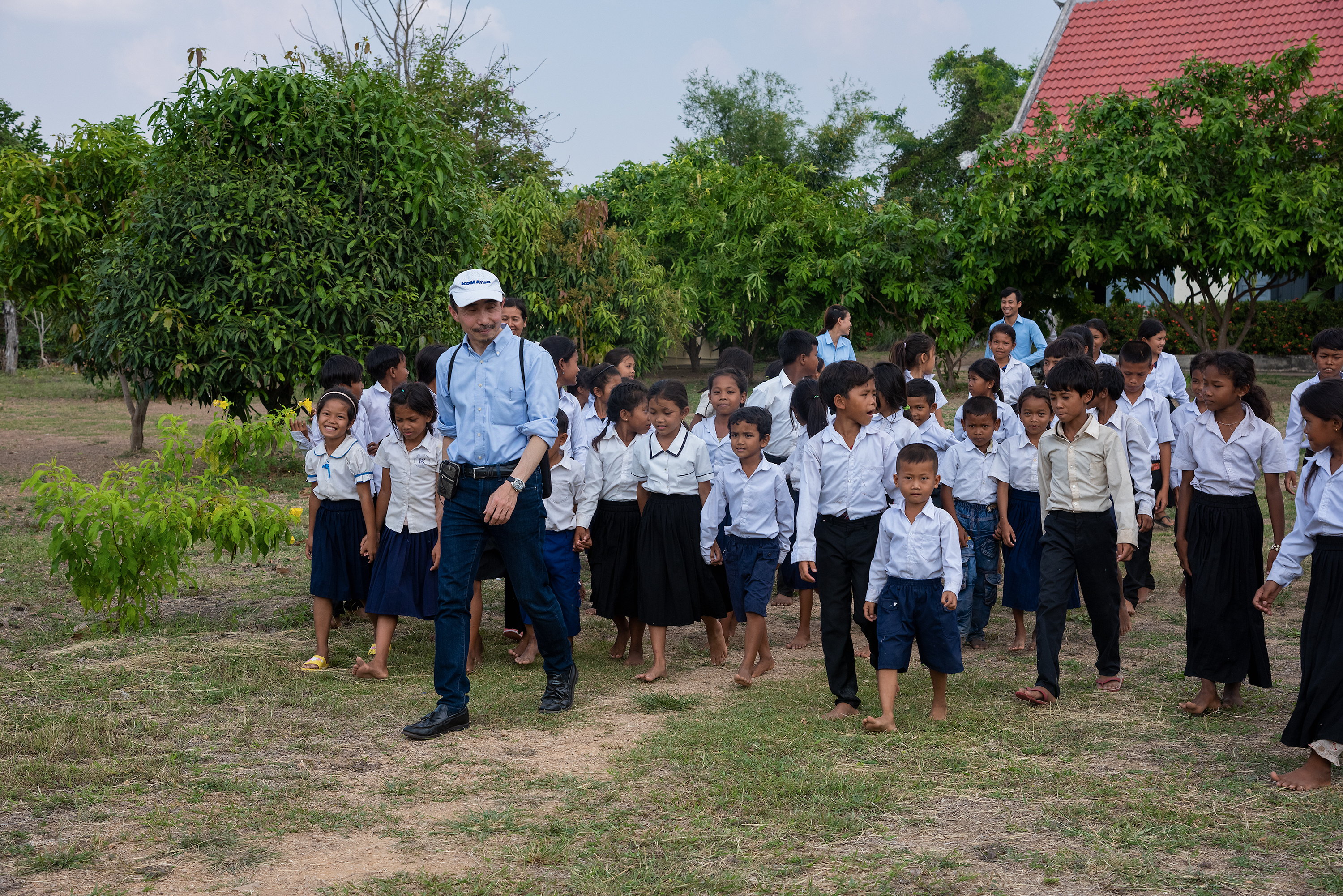
“What I remember most is how once we were accepted and appreciated, the bright big smiles we would receive when they would see us working in the fields.”
With roads and schools in place, the locals' lives changed drastically and rapidly. Witnessing this reaffirms his belief in the power of engineering and machines to bring about positive change.
“As an engineer, I think it’s amazing to see how Komatsu can contribute to peace through technology and is always looking for projects where we can change people’s lives for the better.”
Meet Chie Moritaka, Agricultural Engineer
Chie Moritaka is an agricultural engineer at Komatsu. Her main focus is helping locals reclaim their community after the land is cleared from the threat of buried landmines.
Moritaka learnt about the project during her first day at Komatsu in 2012, and wanted to become a part of it. Six years later, a position became available, and with the experience she had gained in the meantime within manufacturing, logistics and sales she was a perfect fit.
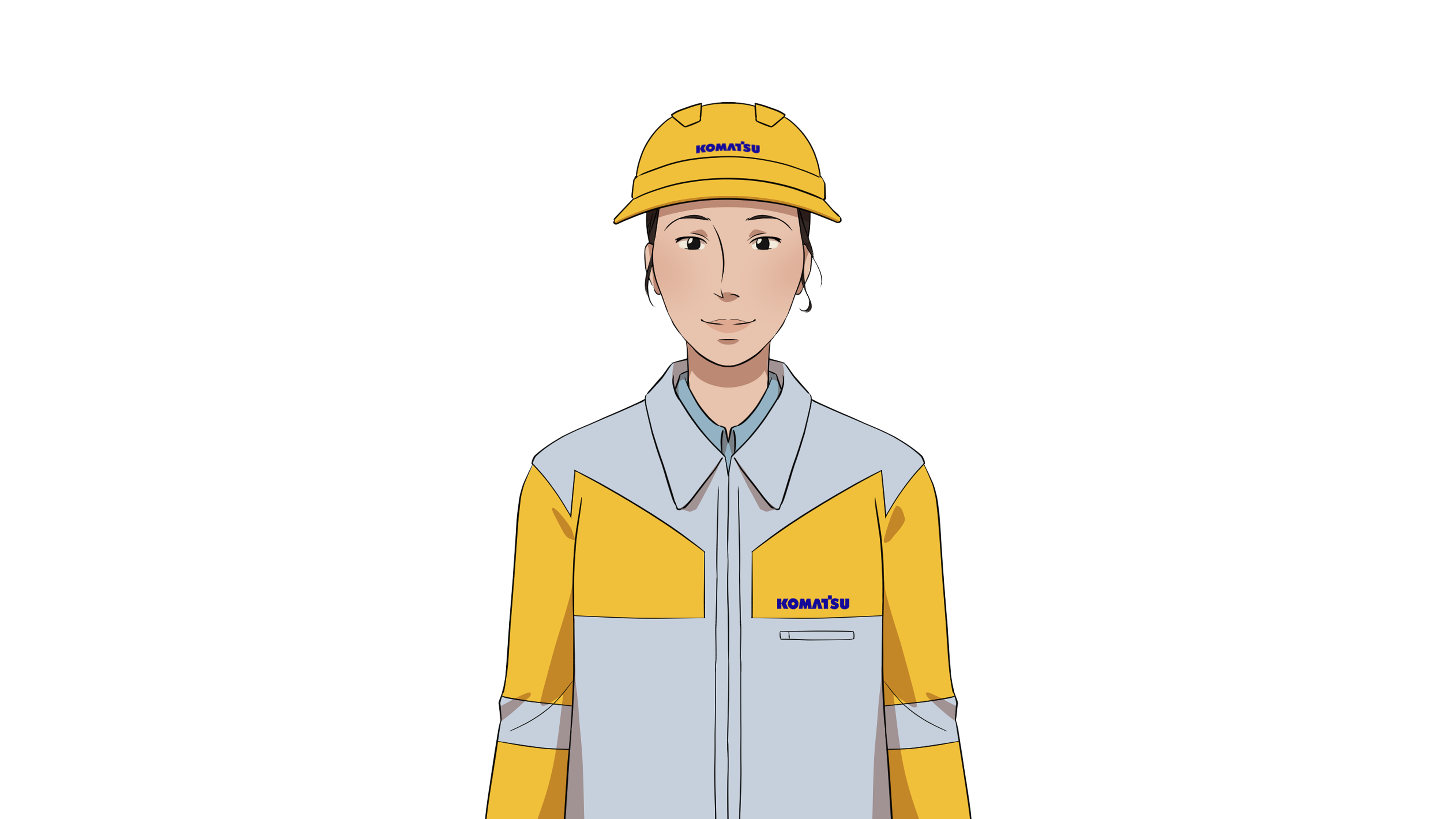
Once on the ground in Cambodia, Moritaka was involved in all aspects of the wider project including negotiating with local government authorities and helping residents understand how Komatsu equipment could help support local farming activity.
It was challenging for her to establish trust and working relationships with local farmers wary of using heavy equipment in their fields and rice paddies. But with the help of one village mayor, she got the chance to set up a test site to demonstrate how Komatsu's technologically advanced bulldozers would improve agricultural efficiency to help increase the farmers' income.
As farmers came to see the test site, Moritaka worked to gather existing production data for rice, corn and cassava crops. Soon the farmers were saying, "Next time, we want you to do this in our rice field." This started an exponential positive effect on the quality of life in the local villages.
“It's about giving local farmers and their children as many choices in life as possible, with the help of our machines and this initiative they can look forward to a better life.”
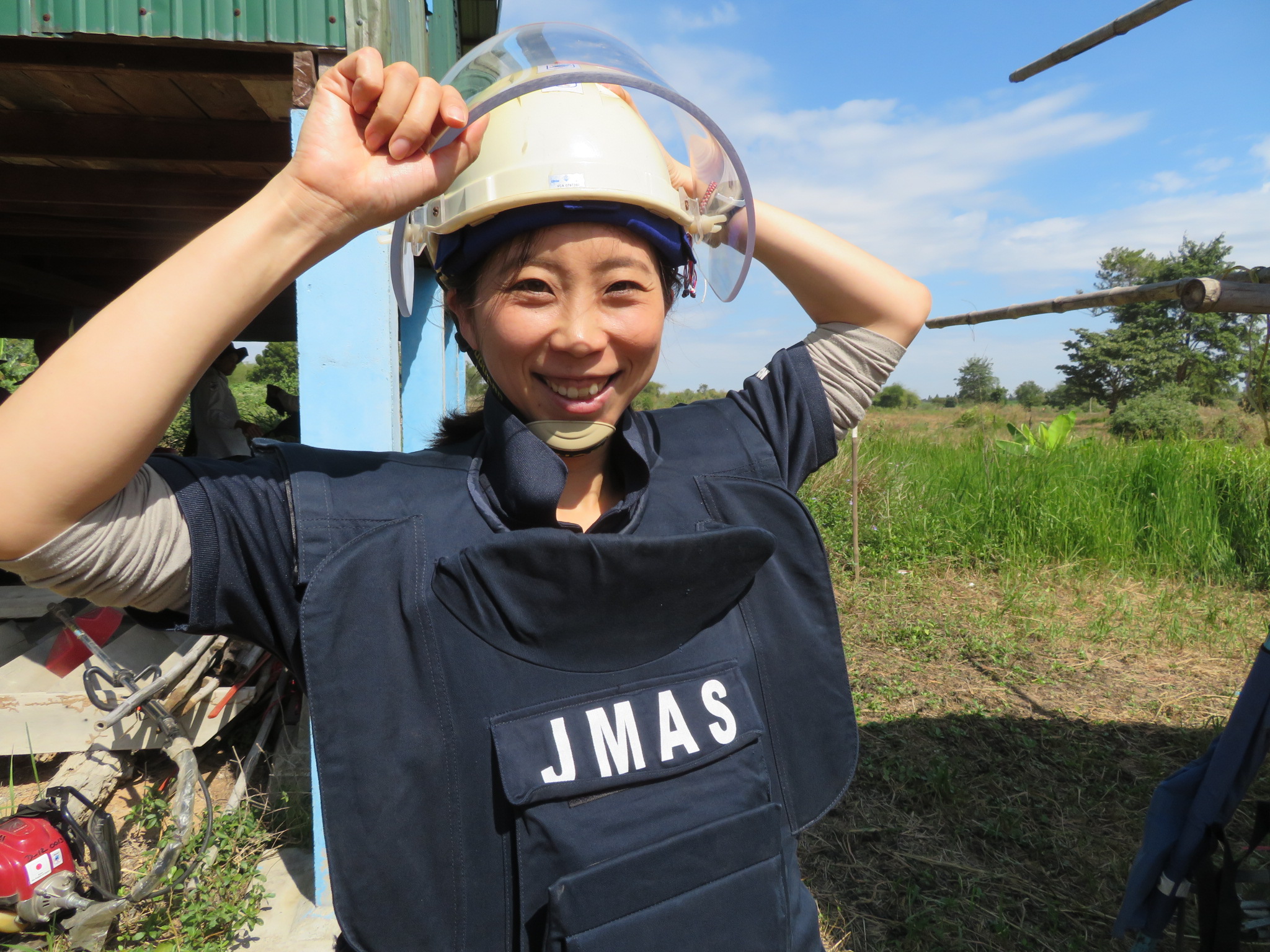
Working on the project has also given Moritaka another important role at Komatsu: visiting schools and universities in Japan to provide guest lectures and introduce new generations to the project, describing the import impact it has had on the people of Cambodia.
Meet Gody Amba, Service Support Engineer
Gody Amba is a service support engineer stationed at the Komatsu Bangkok service support center. His role involves providing essential technical support to machine operators in Cambodia, diagnosing and solving machine issues to conducting in-depth operator training.
One of the most challenging aspects can be finding spare parts quickly to reduce downtime. This isn’t easy when working with older or bespoke machines. He has on occassion had to contact different parts departments to help find equivalent parts and solutions to a specific problem.
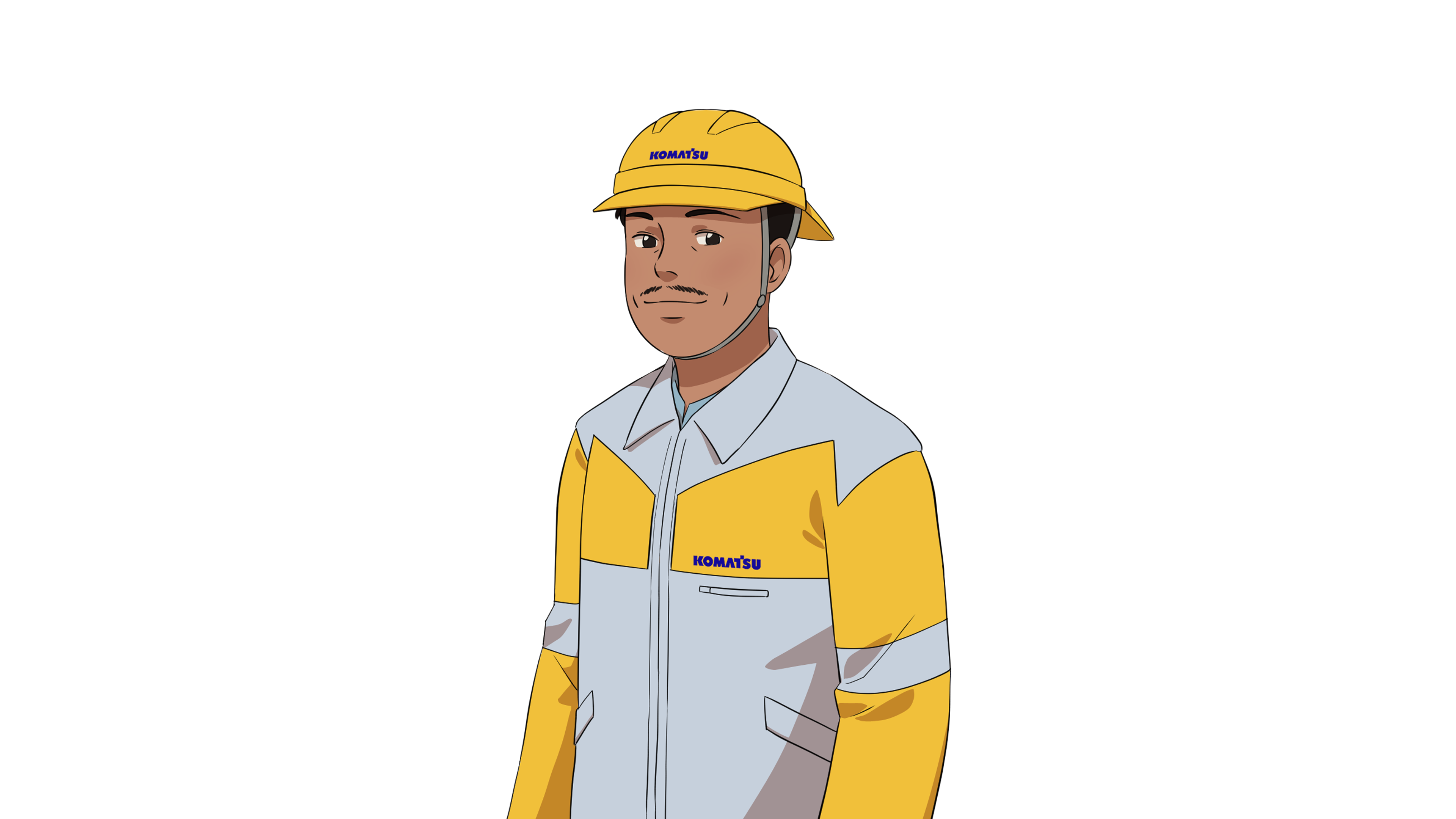
Problem solving and being able to think out of the box marks this out from other technician roles he has seen. Working with the local operators to find the cause of the issues has at times given surprising results. A common problem with the machines occurs from a local pest.
"The mines never hurt the machines; it’s the rats that eat the cables, so we had to solve this."
Gody has also developed formal training programs for the local Cambodian machine operators. This is not only done for the sake of the project but also to provide them with an education, giving them additional skills apart from farming. Gody, a Philippine native, does not speak the local language, however as a technical engineer Gody finds that teaching by demonstration and repetition gets results and helps gains trust.
"The locals always showed me kindness even though we didn’t speak the same language; their actions did."
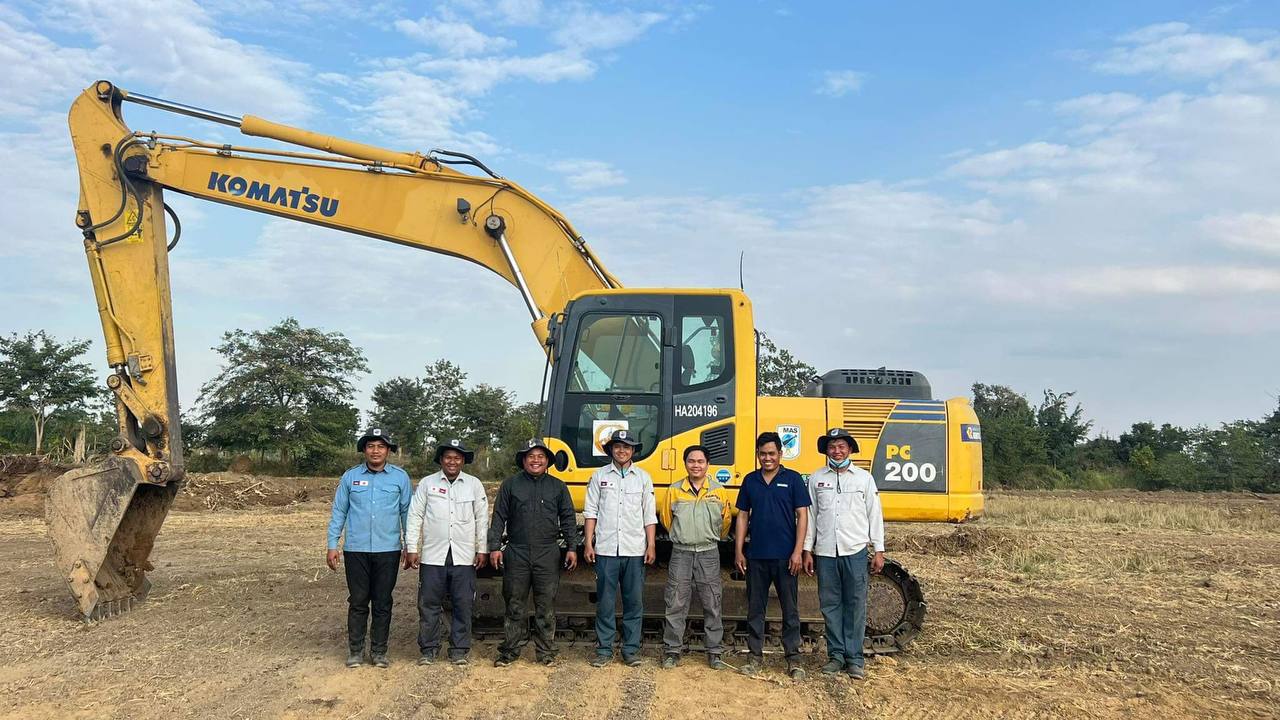
Gody started with Komatsu in his native Philippines but has since been assigned to work in Dakar, Senegal and now in his current role in Bangkok, Thailand.
“My experience means I can operate and provide training on all kinds of heavy equipment, uniquely though, I’ve had the opportunity to travel to different countries and cultures with Komatsu to use these skills.”